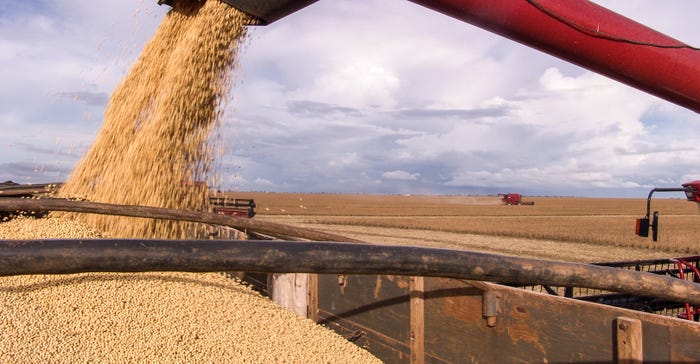
By Nov. 15, soybean plots in the MU Variety Testing Program were not harvested.
“This is one of the latest harvests that I have record of,” says Chris Craven, who oversees the University of Missouri program. “But I don’t believe that is indicative of our quality of work, or how fast we’re able to get things harvested.”
So just what happened in 2017 soybean plots this year? Missouri Ruralist asked Craven to recap the soybean season, which includes insight on weather, pests and dicamba drift. The plots are in Truxton, Annada and Canton, Mo.
Missouri Ruralist: When did the seed finally go into the soil?
Craven: All of our 19 soybean trials were planted between May 30 and June 13, pushed back by our late corn-planting dates. We had exceptional weather in that time range and were able to get all of the tests planted rather quickly.
What factors added to the extended harvest season?
This is one of the latest harvests that I have record of, but I don’t believe that is indicative of our quality of work or how fast we’re able to get things harvested. Several factors affect the length of our harvest season including rainfall, grain moisture, planting date, soybean maturities within the test, available work time within the harvest day, etc. For this year, we started off with late planting dates, had continued rainfall throughout the harvest season, and have had issues with grain moistures being too high for the grain to be marketable for the cooperator — all of which push back our harvest dates.
Did dicamba drift issues impact plot results?
We are expecting dicamba-related issues to most certainly have an impact on some of our southeast region trials. From our scouting during the summer months, we know that damage occurred at three of five locations. We will be harvesting four of the five locations regardless of damage. Once the data is in including yield data and plant notes, we will analyze the data and determine if there was an effect on yield. Once we determine if damage has occurred, we will likely make an announcement to all entrants as to how we will proceed with data posting.
Only one other test in the state exhibited symptoms of dicamba-related damage. It was determined that no yield effect occurred that would affect the reliability of the posted data.
Were there any weed pressure problems in the regions?
We did have several locations that experienced issues with waterhemp. We use a conventional herbicide plan, so that all soybean entries in our tests are treated equally. These locations that had waterhemp issues were sprayed both pre- and postemerge — we came back after the postemerge application and hand-weeded as necessary.
Were there any surprises this year from the soybean trial?
There were no huge surprises on the soybean trials. We are very happy with some of the results we have gotten, while others have been average. It is interesting to look at multiple locations within a region and see differences of 10 bushels per acre, especially when all locations were treated equally. It shows how important it is to look at multiyear and multilocation data when trying to choose a high-yielding variety for your farm.
About the Author(s)
You May Also Like






